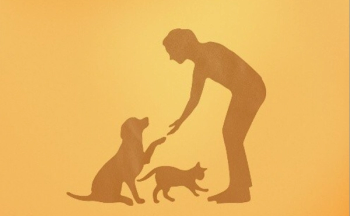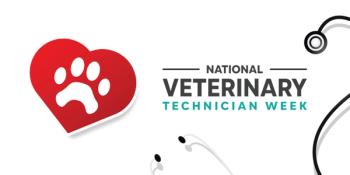
- dvm360 June 2024
- Volume 55
- Issue 6
Care for one, care for all
Jon Geller, DVM, DABVP, Emeritus, is working to help ensure pets from all walks of life can get the care they need while helping their owner along the way
Unlike many veterinary professionals, Jon Geller, DVM, DABVP, emeritus, from Fort Collins, Colorado, and founder of The Street Dog Coalition, did not want to pursue a veterinary career at an early age. He became a building contractor in his early 20s, but by his late 30s, he had realized that was not what he wanted to do in life. To Geller, that is the time in life when people have the chance at a second career, and he began to look into veterinary medicine.
"I loved everything about the idea of veterinary medicine: the compassion, the hands-on aspect of getting to work with so many kinds of animals, and the latitude that was in the profession. You can do so many things as a veterinarian, for example, that you can’t do as a physician,” Geller explained.
After graduating from Colorado State University College of Veterinary Medicine and Biomedical Sciences, in Fort Collins, Geller provided care for large animals and had plans to return to southern Colorado. He was working on mixed animal house and farm calls, but it was not working for him financially, he said. To earn extra money, Geller began working as a relief veterinarian at emergency hospitals, where he realized that was what he wanted to do with his degree. His love for emergency medicine eventually inspired him to open his own clinic. During his time in emergency medicine, he had noticed that although the clinic was providing excellent care, it came at a high price— and for some, the price was too high for them to afford the care their pet needed.
The reason I got into street medicine is that it’s in stark contrast to emergency medicine, where we have all the bells and whistles, we get paid quite well, and clients pay very high prices for our services. I felt the pain of so many clients who were facing economic euthanasia because they couldn’t afford treatment. Of course, we tried to work with them. I started a fund called the Ladybug Fund, which helped people pay for care and emergency hospitals. But then…a very specific thing happened,” Geller said.
In 2014, he was in Nashville, Tennessee, walking across a bridge, when he came across an unhoused man who was sitting with all his belongings and a pit bull. Geller locked eyes with the man and had a silent conversation, leading him to wonder whether he could find a way to help this man and his pet. A few months later, Geller founded The Street Dog Coalition.
Now, 10 years later, The Street Dog Coalition has expanded from its first team in Fort Collins to 61 teams across the United States. Each team offers street clinics in different scenarios in a wide variety of locations, such as near homeless and animal shelters, under bridges, in churches, and even in parking lots. Each clinic’s goal is to operate in a location where anyone who needs it can access to it. Geller explained that based on his studies, two-thirds of those experiencing homelessness stay in a shelter, leaving one-third of the population unsheltered— including people with pets because not many shelters allow animals other than service pets.
"Street medicine is providing care in a low-resource setting. We don’t bring x-ray machines, and we don’t bring laboratories with us. We use the tools that we have to use: our head, our senses, and then finally our heart because it’s all about taking care of both ends of the leash. The bigger challenge is on people’s end of the leash. And that’s where, we were surprised to realize, pet care is pretty straightforward, but people in that situation have so many challenges. And we can help them even if it’s just having a nice conversation with them. That’s the highlight of their day, but now we know we have resources…to help other people,” said Geller.
The Street Dog Coalition is also moving in a similar but new direction with its One Health Outreach. At its popup clinics, the organization will sometimes partner with human health providers to perform health screenings and dental exams. It also partners with social work teams, addiction and mental health counseling services, and more. For longer events, the coalition will provide food, clothing, haircuts, and other necessities. Geller said they will even invite bicycle repair workers to fix anyone’s bicycle to make sure they can get around easier, as most larger cities do not allow nonservice pets on public transport, making it hard for owners to get their pets access to care.
After being in “the trenches” for the past 20 years, Geller said, he knows what he likes best about the work he does with The Street Dog Coalition: Everything is free, which takes stress off the owners because they can get their pet the care they need. For the veterinarian volunteering their time, it’s an opportunity to give back and help their community.
"When you take money out of the equation of veterinary medicine, it is liberating. Veterinarians love it because [money] never comes up, and I enjoy hearing the stories of people I know nothing about and hearing the stories of their lives with their pets.… They’re so appreciative of what we can do, even if it’s really basic stuff. It might just be vaccines and some parasite protection,” Geller said.
Lastly, Geller teased that besides the Street Dog Coalition, he has other projects in the works to help even more people get much-needed care for their pets. He plans to discuss more about these projects on an upcoming episode of
Articles in this issue
over 1 year ago
A comprehensive guide to understanding veterinary telehealthover 1 year ago
The dilemma: Seven common complaintsover 1 year ago
Absorbable chemotherapeutic beads combat cancer in horsesover 1 year ago
Coastline keynotes for our Atlantic City conferenceover 1 year ago
How to find balance between rewards and consequencesover 1 year ago
Preparing for an emergencyover 1 year ago
Pride, not prejudice!over 1 year ago
Win back refillsover 1 year ago
Fostering LGBTQAI+ inclusion in veterinary medicineNewsletter
From exam room tips to practice management insights, get trusted veterinary news delivered straight to your inbox—subscribe to dvm360.






